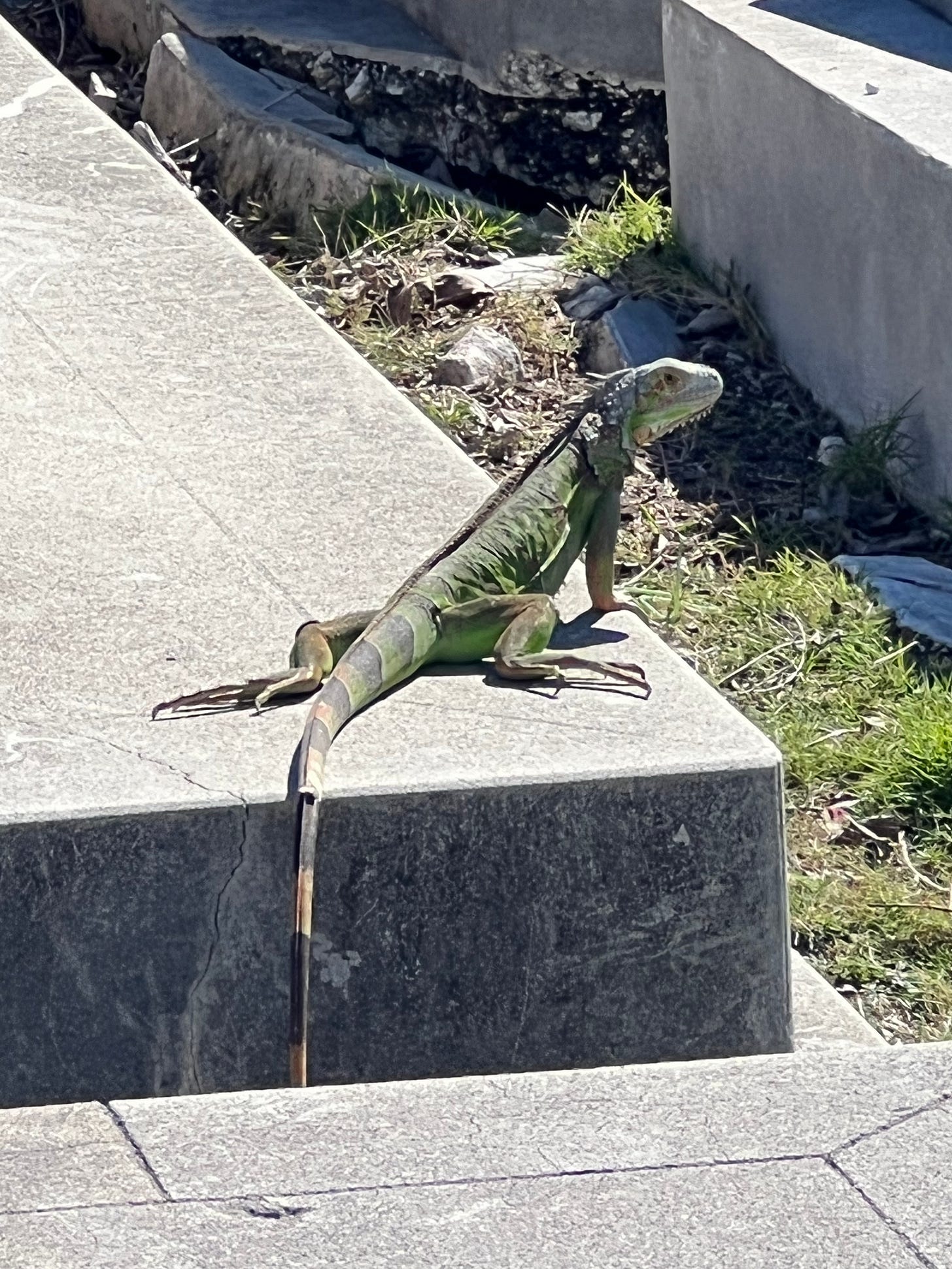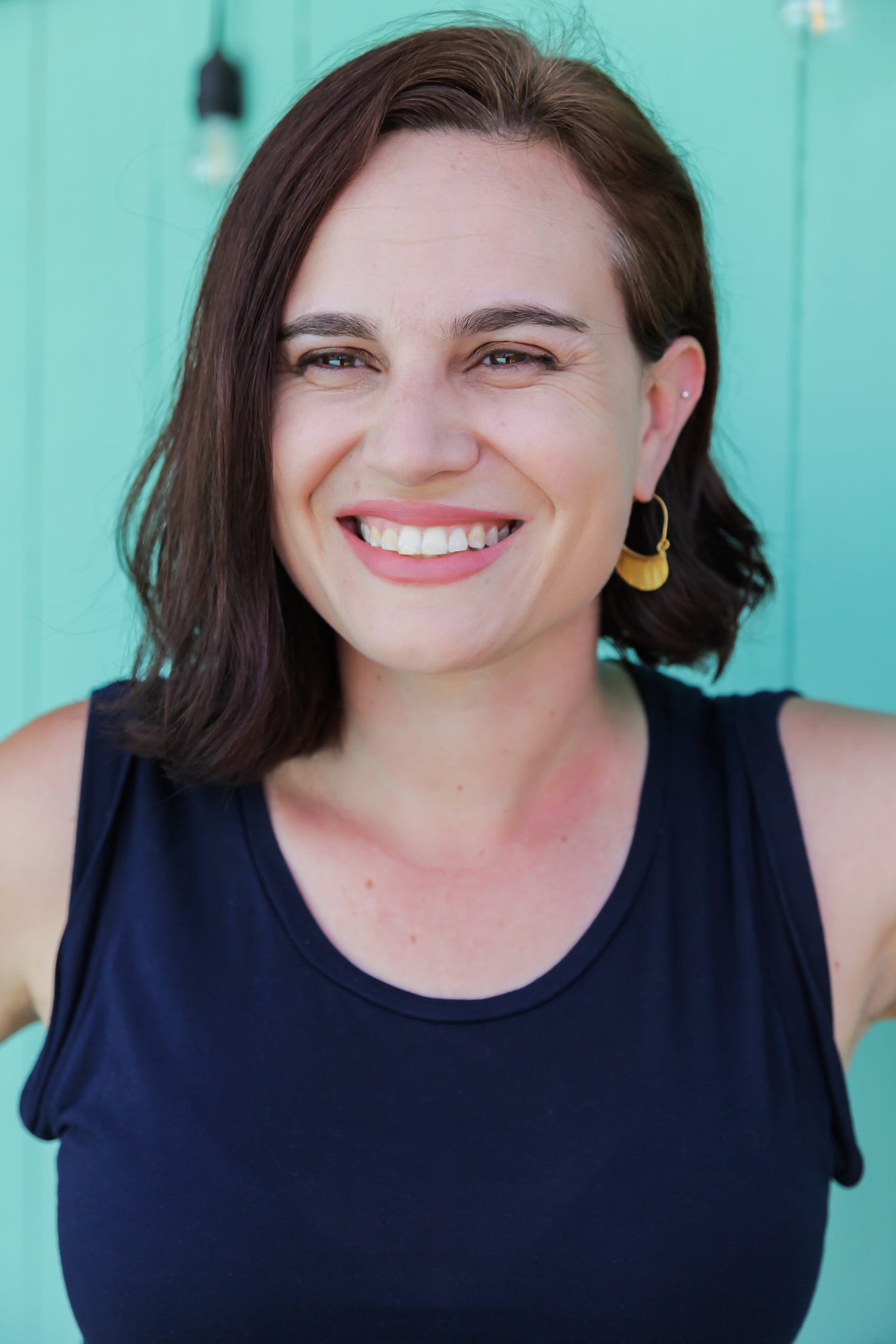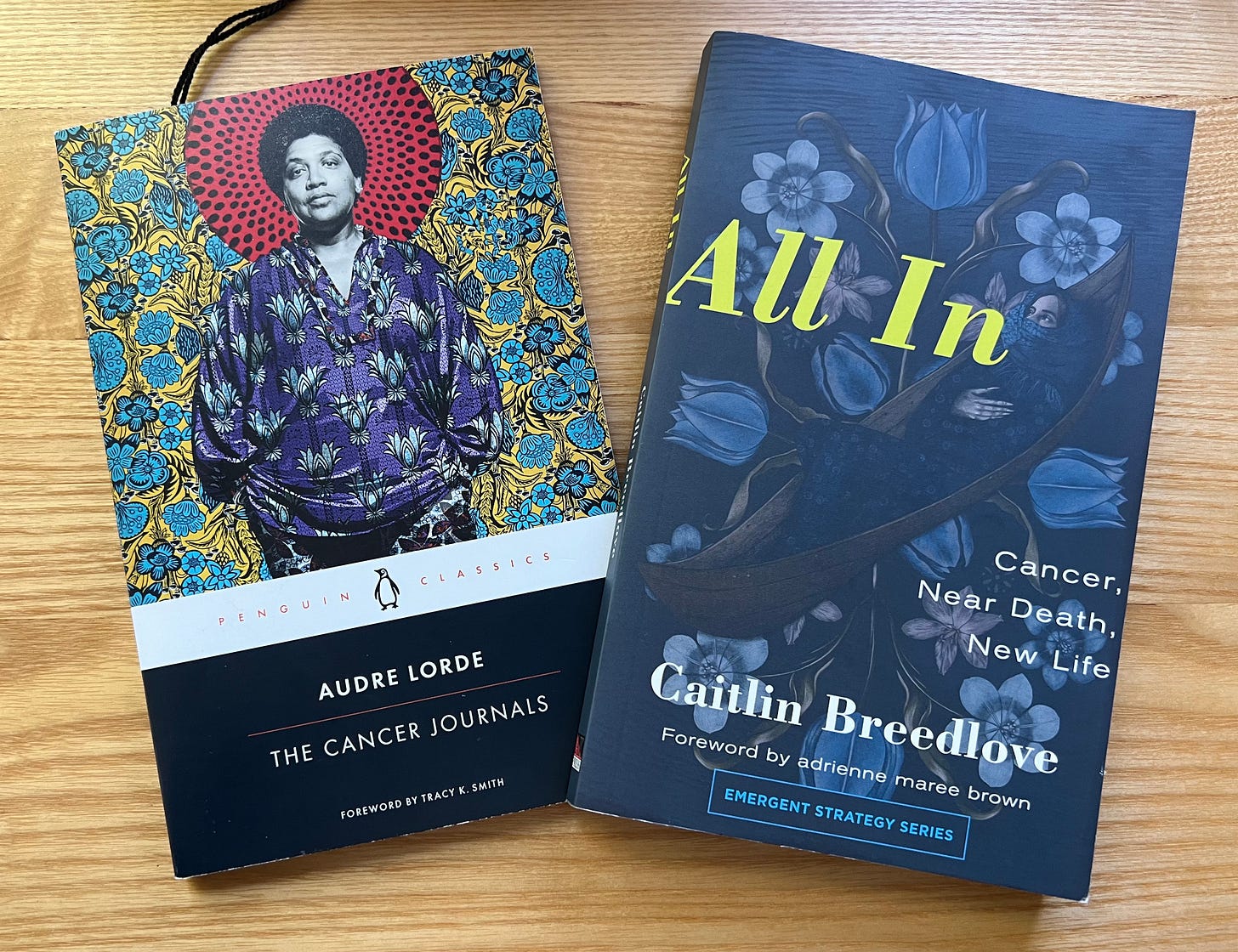Hi Y'all,
When you were diagnosed, were you like what the actual fuck? When I was first diagnosed, I was devastated. And I was pissed. Why was this happening? I did yoga, ate a mostly plant-based diet, walked for miles and miles. Other people were shocked by my diagnosis, just like I was. Why was my body doing this to me? Why me? Why now? Why, body, why?
Maybe you've felt like this, too. Maybe not.
I felt like cancer came for me. I felt BETRAYED by my body, like my body failed to protect me, failed to do the work to prevent these cancer cells from being fed by estrogen, failed to squash the cancer spread to my lymph nodes. I felt this separation; there was me and there was my body.
It was easier to be angry at myself, at my own body, than all of the corporations polluting our environment and all of the politicians permitting it. {Yes, my cancer (the IBC one, not the skin one) is genetic, but not everyone with a mutation gets cancer. Another friend with cancer was surprised that I have it. I’m pretty healthy. I live in a peaceful place with good water and fresh air. But this wasn’t always true. I grew up lower class, and being poor in this country is basically a crime that we punish kids for by poisoning their bodies}.
Each time my body morphed, I felt disappointed in a new way. Dramatic changes, fast changes. Hair loss from my head; hair gain on my face. Amputation of my breast, loss of skin. More freckles, new moles. A scale on my right arm just like a lizard.

So long estrogen. Body drier than the desert. Shocking burning in the bottoms of my feet. Perpetual dizziness. On the verge of puking almost as consistent throughout my day as the times I lose the name of a person, or can’t find my keys. My memory palace once fully unlocked now has hidden entrances with deadbolts and eternal trapdoors.
If someone had challenged me to consider my favorite things about myself in all of the ways (physical, emotional, mental, skills, thoughts, experiences, and on) and then consider what it might feel like to lose those things, I never would have gotten close to how it really feels. Now I know what it’s like to have an enemy, and for that enemy to be my own body.
When I wasn’t turning my rage inward, I started to feel angry at other people. Like I'd walk down the street and see someone eating fried chicken or french fries and think why did I get cancer when they seem to be perfectly fine? And then, can I get some of those fries? And do you have any hot sauce? And where’s the hot cheese? (I ate & continue to eat mostly healthy, but what is life without french fries once in a while-am I right?) Look, I know it ain’t pretty to think this, and yet, here we are. Also, being on steroids as part of treatment can make you furious at people for everything, like eating fried food or talking on their cell phones in public. How dare they!
Why me? I kept asking that until I started asking Why Not Me? At least I have the resources that having cancer won't bankrupt me, and at least I have a wonderful supportive partner, and at least I have friends nearby who I can ask for help. So why not me? (Truth be told, when I was diagnosed with another cancer one year after the first, I went back to these thoughts. Why me? Why, body, why?)
Sometimes, it's hard to have a body. I wish we were all blobs. That you were a blob, and I was a blob, and we just blobbed about. Some days, we can pretend to be blobs, or straight up feel like blobs, but…we aren’t.
I went for a walk with a friend who has had her share of health surprises, challenges, suffering. We talked about how we talked to our bodies, our internal monologues. In reaction to our diagnoses, we said awful things to our bodies, words that shouldn’t be spoken, language fastened out of contempt. We realized that we needed to change the script, that we needed to uncover a new language that contained kindness and support. I needed to forgive my body.
After asking my body why it had done me like this, I said:
Alright body, you’re doing your best. I’m gonna need you to try a little bit harder. Let’s work together on healing.
Hey body, thanks for being able to walk 3 miles today. Let’s try for a little longer tomorrow.
Hi bod, you deserve to have pleasure. Let’s imagine something that will help us relax and feel into our connection.
Body, you are nothing to be ashamed of. (Yes, society wants you to feel ashamed so you’ll buy things to fix your body. Nothing you buy will fix it because it’s bigger than how your body looks. It’s about your relationship to your body). Body, we are nothing to be ashamed of.
Body, there are so many ways to be beautiful. Let’s be beautiful outside of societal norms, beyond these reductive garbage expectations.
Alright, body, let’s get stronger. Let’s go to that hip hop fitness class. Let’s run for two minutes. Let’s get up and walk even though we feel like resting.
Today, body, is a day for resting. Today, was hard. Today, let’s watch copious tv. Today, let’s try to laugh. Today, let’s eat that oat milk mint chip ice cream straight from the container.
Y’all, I can go VERY corny with my body talks. Yeah, it’s all kind of embarrassing, I guess. Actually, f that. I’m healing myself and it’s powerful. It’s all KINDS of POWERFUL.
Now, I’m moving toward body acceptance. I’m not quite there. An amputation is not a small thing, not to me. At the moment, I am a student of Body Neutrality, learning to appreciate my body for what it can do for me, and telling myself that my body is still worthy, that I am still worthy.
Meditation:
Alright, y’all, let’s meditate. Find your comfortable-ish posture, whatever that means to you. Maybe you're sitting in an infusion recliner or in the waiting room on a stiff chair. Maybe you can lay on the floor, maybe this is before you head off for your next appointment.
If you feel resistance to meditating, it's okay. This is just part of the practice. If you can, offer yourself patience. Notice where you’re at, try not to judge it.
Take a few big breaths, ground yourself into being here right now. Inhale in some fresh, cleansing breaths. Exhale out any tension or stress.
{Silence for a minute. Maybe you close your eyes or have a soft gaze.}
As you breathe, remember to be in your body, however you feel about it right now, try to be in it. Depending on past trauma, this could be a scary thing for you. Always remember, you are the expert on your body and all of this is only an invitation.
I'm skilled at disassociating from my body. While being in my body, especially with its pain and changes, can be difficult, it has helped me with body forgiveness. And I think it will help me on this path of body acceptance.
Check in with yourself today. What's happening in your body? your mind? your heart or soul or whatever you want to call these places in you that are so strong and so tender?
{Silence for a few minutes. Maybe you close your eyes or have a soft gaze.}
Maybe you're upset. That's okay. You don't have to put a bow on how you feel. But let's not turn anger inward, let's not put anger on the people who are helping us, let's find a way to channel it if possible.
If you need to rage, maybe pause this and go rage. I did some screaming in the kitchen. My friend set up my drums, and I plan to thrash them the next time I feel mad. Go to a batting cage or a business where you pay to break things or gather up all of the dishes in your community that are already cracked, don some goggles, and go rogue. Be pissed. (Let me confess here that every time I try to write pissed, I accidentally write pizza? Be pizza!)
Whatever you are feeling, just acknowledge it. Sad. Lonely. Anxious. Heartbroken. Nothing? Maybe it feels like you're feeling nothing. I had that, too. At times, I couldn't even stand to be in my own body.
Or maybe you aren’t sure what is going on.
What is happening to our bodies during treatment is a monster challenge. On top of that, we are still dealing with society’s expectations for how we should look/act/be/feel. With these expectations, these very unrealistic damaging ideals, we might find ourselves disappointed in how we don’t measure up, in a state of perpetual comparison that exacerbates our own suffering.
{Pause here. Take a deep breath. Let that shiitake go…}
I took some mediocre notes on a wonderful meditation by Sebene Selassie, and she says something like this: given how harsh the world is, doesn’t it make sense that instead of criticizing ourselves, we become our own best friends? That we invest in ourselves instead of berate ourselves? Imagine if we spent this time that we are doubting and condemning ourselves, offering ourselves loving acceptance instead. Who would we be then?
Who would I be then? Who would you be then?
{Imagine this. Silence for a few minutes while you imagine what is possible.}
We know that when we connect with our emotions, and feel what is happening that it can be hard to stay in this place, with the hurt and discomfort. It can also offer us something that feels like freedom.
Thanks for showing up for yourself, for your body. Stick around to meet our tiny owl, embrace your own suffering instead of denying it, and then dance to and celebrate the gorgeous body that you have (yeah, you!).
Sound/Music:
Hurt by Johnny Cash. Yes, this is actually a Nine Inch Nails song, but there is something in the way that Johnny Cash sings it. His voice captures so much pain. Cry it out.
Thunder Thighs by Miss Eaves. This came out in 2017, and still deserves space as a Summer Anthem. If we can, let’s try to celebrate what we’ve got, whatever it is. And if that’s not possible for you at this moment, maybe neutrality is something to strive toward. The book, Body Neutrality by Jessi Kneeland (she also has a podcast), was helpful for me on the body neutrality path, for focusing on how my body was a tool for ME, something I could use to get me places, for pleasure, to cook delicious food, to walk far distances.
Tips from Pals:
I first became familiar with Caitlin Breedlove through her work with Song, and recently read her book, All In: Cancer, Near Death, New Life. Since I’m barely on social media, I sent her a message through LinkedIn (which I look at 2-3 times per year), and she wrote me back!

In her words re: Body Betrayal, Body Forgiveness:
The terms body betrayal and body forgiveness are ones that I learned, and frankly, are not ones that I have related to in my experience with ovarian cancer. I am not sure if it is because other cancer sufferers have had different expectations than I do of my body? I do not feel my body ever owed me anything. I do feel I took it for granted, for decades. It works much differently now. I do not feel I have anything to forgive it for. I am getting used to it again. All parts of me are getting used to each other. Each membrane is more atrophied, less juicy. Each joint, less lubricated. The right foot bones, healed for years from neuropathy, by stretching and attention, occasionally go on strike. Often I sleep 3 hours or more in a row, but sometimes not. The reasons vary. Sometimes a kicking child, sometimes a crying baby, sometimes a drenching hot flash, from radical menopause, post-cancer surgery. It pisses me off certainly. I get irritable, but I also accept the conditions. I have been used to them for some time now. I changed other things in my life, so that I would not take it out on my body. There is nothing wrong with my body. It did not betray me. Dominating death-centric systems did. I have to work less. I have less money, but still plenty. I buy less. I travel less and more modestly. I eat out less. I see people less. I go out less. I cook simply. I do not waste food. Not everyone could make these changes and get by, but I do. I live in a less expensive city than some do. This means when everything has to go slower, I am not angry at my body. It is not my body that needed to change, it is my life that needed to change. And my life has. So I don't ask my body to do things it cannot do, and it does not try to do so. So, in my incredibly fortunate case, I can still do many many things, almost all I used to do, again, miraculously again!-very similarly to how I did before! I can walk, read, talk, pick my children up and put them on a hip, play hide and seek, have sex, go for a run. Because I radically changed my life, and my expectations of my body,I am not mad at my body for all I do, I do slower and with more breaks and in need of more rest.
The link to Caitlin’s book is above. To me, it sits in close proximity to Audre Lorde’s The Cancer Journals. Both of these books resonated with me. Maybe they’ll vibrate with you, too.
Books are critical as mirrors so that we may see ourselves, find connections, observe possibilities, and as windows into other people’s ideas and experiences so we may expand our understanding and compassion, and see new ways of being.
Until soon, sending love and laughter,
Kel








A significant destabilizing event can really kick off the oscillations of internalizing - externalizing; self-alienation - self-acceptance; desire & suffering - mindfulness and acceptance. Sometimes, finding a point of equilibrium is just a matter of waiting, sometimes it's a lot of hard work, sometimes it doesn't happen. I enjoy how you consider these questions with curiosity, acceptance, and wisdom.
Hey Kelly, I love your dialogue with your body. Isn’t it true, our emotions turned inward to the vehicle that we call our body, trying to understand why it has failed us, especially when we’ve been so considerate of it. You, more than most people I know, eat heathy, focus on meditation, take care of yourself, but you know what, cancer doesn’t take any of that into consideration, but guess what, SURVIVAL does! You’re a survivor! You’re a fighter! You’re an inspiration to us all. Love you Kel🦋🩵🙏